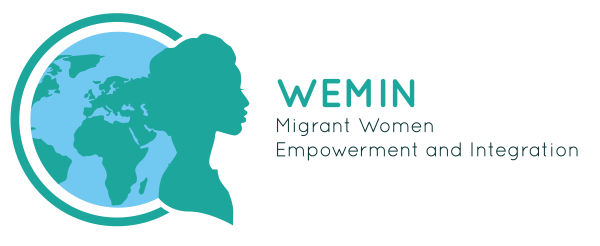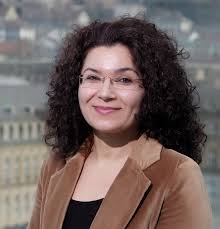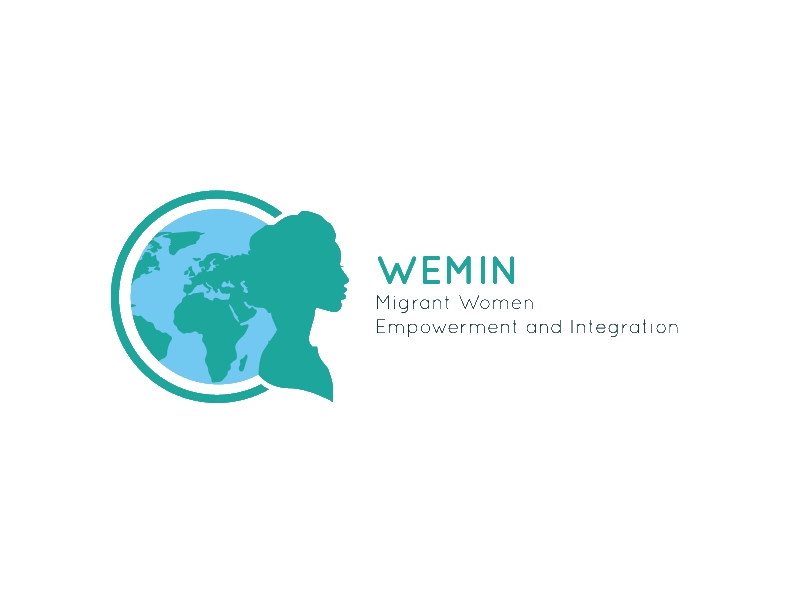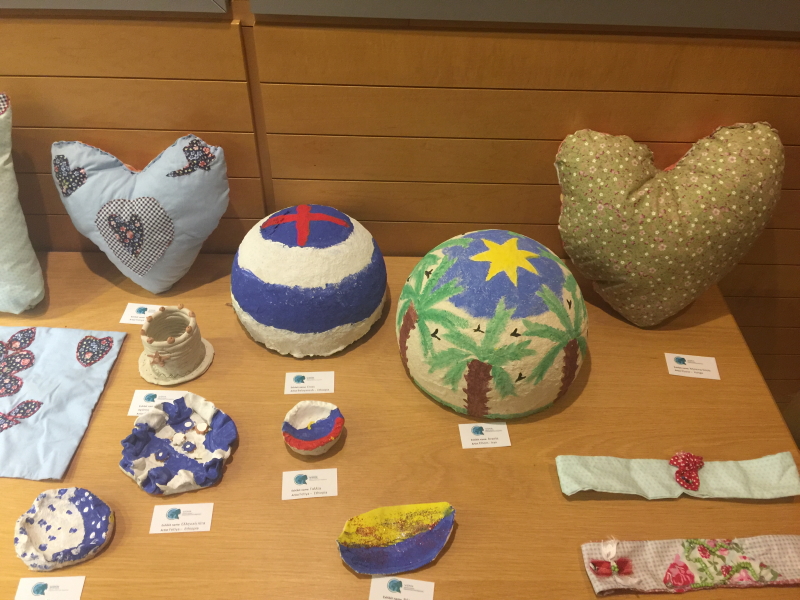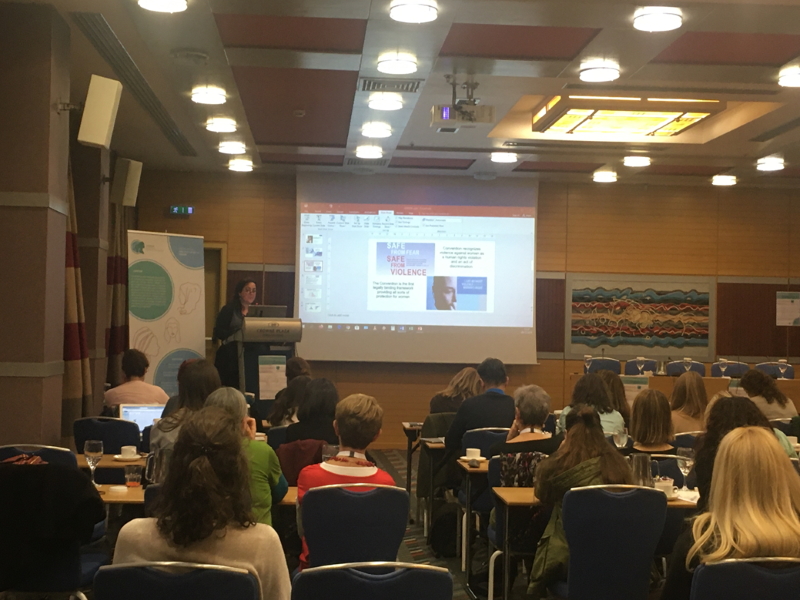Interview with Ayse Özbabacan, Integration counselor City of Stuttgart and member of the WEMIN expert team in Germany

Interview of Nadia – Cultural mediator for Asev
June 10, 2019
Cultural Outings of WEMIN: roses, giants and boats
June 20, 2019Interview with Ayse Özbabacan, Integration counselor City of Stuttgart and member of the WEMIN expert team in Germany
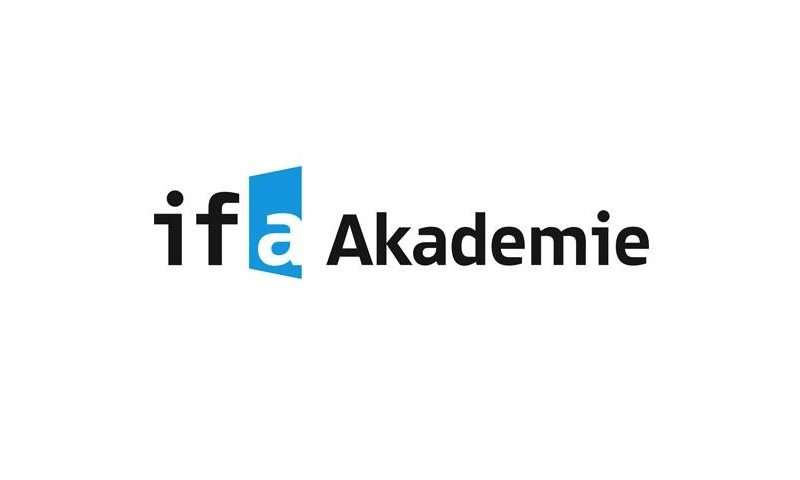
Why is it so important to offer special empowerment services to newly arriving migrants and refugees – like WEMIN has been doing it?
Yes, to empower people who have arrived here, means to "empower" them so that they can use their strengths, skills and talents to gain a foothold here in our society.
We have a great number of people, especially when I think of the refugee women who came here, who have had an academic education abroad, or have been working in other qualified fields. They collected many skills, strengths and resources which however seem not work here with us because they lack the language or because the degrees are not recognized. In addition, many of them then sit in the shelters and simply have nothing to do.
These skills are broken and will be lost. We need to avoid this. Their skills can benefit our society and we can support them to feel at home here. That’s why we must integrate these people. The women are a very important target group and women from different cultures who come to us simply do not have the same opportunities as local women do. Or the men who are simply more flexible and mobile, because women might have children, be single parents, have no income of their own or need to live on social benefits.
We wish to strengthen, to empower and support these women and that's what the city of Stuttgart has been doing various empowerment projects. We have funds that we provide to support such projects, and we also have some women's projects that are also run by refugee women. Language classes and help with homework, computer courses or sewing workshops are just some samples of what we do. For instance, there are women who are qualified dressmakers and tailors teaching others how to sew. That's as an example. The programmes and courses provided by the WEMIN project offer added value in the field of language and cultural courses, creative and arts related activities and mentoring.
You mentioned the examples of language courses, sewing courses, courses that may lead to the recognition of skills and competences acquired abroad, before being forced to be a refugee and to leave once home country. But where do you see the most important needs for support? What is the first step for the women with this background?
The most important issue for our women is: how do I get along in everyday life? What structures are there in the city, which contacts are important to me? The language is of course important too. WEMIN gave us new evidence of the importance of these questions.
But we need look more closely at this. We need to approach these issues in a low-threshold and in a barrier-free way. Of course, this also depends on the educational background of the respective women. We offer integration courses, language courses for women, literacy courses. As a person responsible for these courses, I have to look very closely at their curricula to ensure they are suitable. I must check which language and cultural skills do we teach? How is this taken up by the participants? Are they even keeping up? If I think of literacy courses now, the basic challenge is to know our alphabet. Which level of education were they able to acquire at home? Which learning skills do they have?
Everything just needs time and patience, and of course we need qualified teachers who can do this well. These teachers need to be able to teach cultural skills as well. The next important question is: how do I get along in everyday life, how can I integrate myself here, how can I really participate in everyday life, if I have children who go to kindergarten, go to school.
The contact with the teachers is very important as are contacts to the neighbors, to volunteers. This simply helps Just to get to know our way of everyday life with its sometimes hidden or unspoken rules and norms. And there is need for support, including the support of native speakers from the migrant community, of compatriots who are here, who also serve as volunteers, for example as interpreters. In this field I see the largest need for help and support.
We have many young women among the refugee women who were able to gain a foothold in the labor market. We also have jobs and offers for academics., but we need to think a bit lower threshold. We might need tailors here, but the women with these skills may not have the money to set up a sewing room. But there are many other support options here. We have a lot of women who just love cooking and they can do catering. Or they worked as nurses or educators back home, and here they wish to offer basic childcare to support other women. At this point, we must deal with our municipal administrative offices, such as the youth welfare office. We have to support the women to get in contact with the youth office where they could receive full support of a day-care center. The WEMIN projects provides us with samples of good practice from other countries and they give us extremely useful information. We have been using the WEMIN curriculum and adapted some ideas from the creative workshops of the project for our mainstream services for migrant women.
You explained the relevance of women as a target group. Why is it so important to specifically promote women? If you looked at it from a gender perspective, some critics argue that there is too much for women, but men will fall by the wayside. Why is it so important to provide such special services for women?
Indeed, we do a lot for migrant women because women accept it and because women simply are disadvantaged – whatever some critics may argue. The men go out, they find it easier to gain a foothold in the labor market than women do. Simply because women need to take care of the children, there is less time to learn the new language, the habits of the host country are unknown and the women just do not have the same rights as the men. They may not be allowed leave the house alone. How do we deal with this? How can we reach out to these women?
That's why we must make offers to take the women by the hand. The good news: women are also much more motivated than the men. This is shown by experience. That's why it's important to us to deal with women as a target group. I once met a Turkish colleague who offers language training and she said: "Women develop a taste for education." That's very important. If you get the taste for something, you will stay tuned. It also gives women the opportunity to strengthen their parenting skills, to support their children and to better integrate the children into this society. Who can do this best? These are the women.
There is a saying which means, "If the woman is happy, then the whole family is happy!" Of course, the man will be happy too. That's why we have to take care of the women. We also must look, of course, at what offers we still must develop for men. Not what we already have, the classic offers, but what men need, for example, men from Syria, from Iraq, from Afghanistan, from different African countries. What offers do we have to provide here? How do we profit from our experience collected with our work for and with women to adapt specific courses for the needs and empowerment of men? Here I find many useful hints and ideas in the WEMIN materials – which fully justified focus on migrant and refugee women as our main target group.
Ayse Özbabacan, thank you very much for the interview.
